6 Zero Waste Tips for Moving House
Last weekend, I moved house. And when it comes to moving, unless you can literally fit all your possessions in a single backpack, it is a bit of an ordeal. There are boxes, packing materials, stuff you forgot you owned, stuff you no longer need, things that are (or get) damaged or broken… and so it goes on.
Moving can create a lot of waste. But with a tiny little bit of planning, it’s possible to eliminate a lot of the unnecessary waste. Here’s some tips.
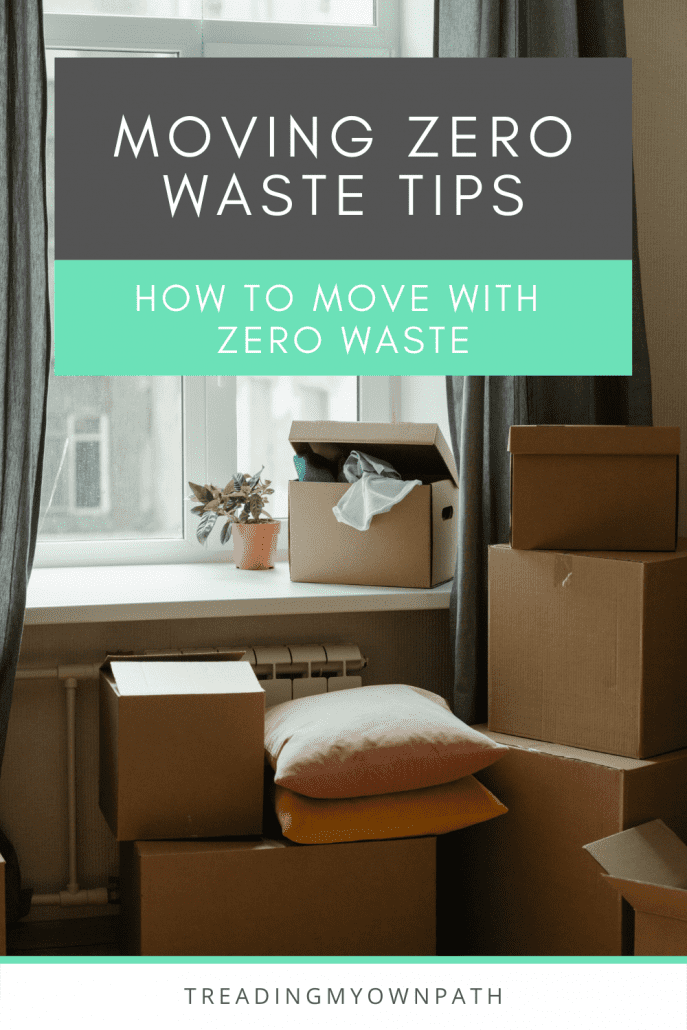
1. Don’t Move What You Don’t Have To
Moving things that you later decide you don’t need is a waste of time, effort and fuel in a moving truck. At the other end, when there are new homes to find for everything you do want and other bits and pieces to sort out, offloading stuff you no longer need is an added hassle.
If you know you don’t need something, sell it or give it away before the move.
I didn’t have time to go through all of my books, games, boxes of jars and other bits and pieces to assess every single thing I own on merit before the move. But moving a book is a little different to moving a kitchen island (especially one that literally wouldn’t fit in the new place).
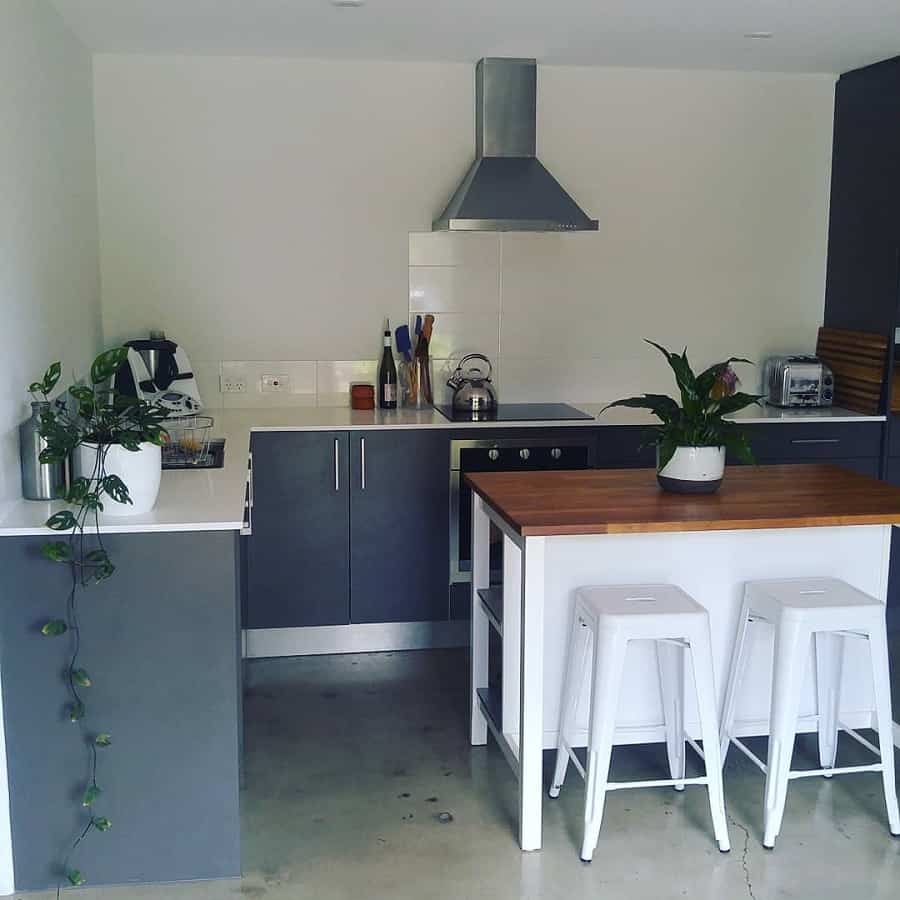
So I prioritised the big, heavy and fragile things (like the kitchen island), listed some things I knew I no longer needed and did what I could.
Sites I use to pass on unwanted goods:
- eBay is great for anything high-value, easy to post and listings that would benefit from a bigger (less local) audience;
- Gumtree is great for bigger items like furniture, anything that the buyer want might want to inspect and test before buying (like electronics) and is good for giving away free stuff;
- Buy Nothing groups are great for giving away items locally.
2. Source Second-Hand Packing Materials
There is really no need to spend a fortune (or spend anything, actually) on fancy packing materials. You’ll be able to get almost everything you need second-hand, and be able to donate it again afterwards for someone else to reuse.
Boxes: I’ve never purchased a packing box in my life and I’m amazed that people actually do! There are so many boxes already in existence that can be used.
I ask friends, family, colleagues and neighbours for useful boxes, either to borrow or to keep and then pass on. My neighbours had some amazing reusable Dutch moving boxes (they are from the Netherlands and brought these boxes over when they moved 12 years ago) that fold together and do not require packing tape.
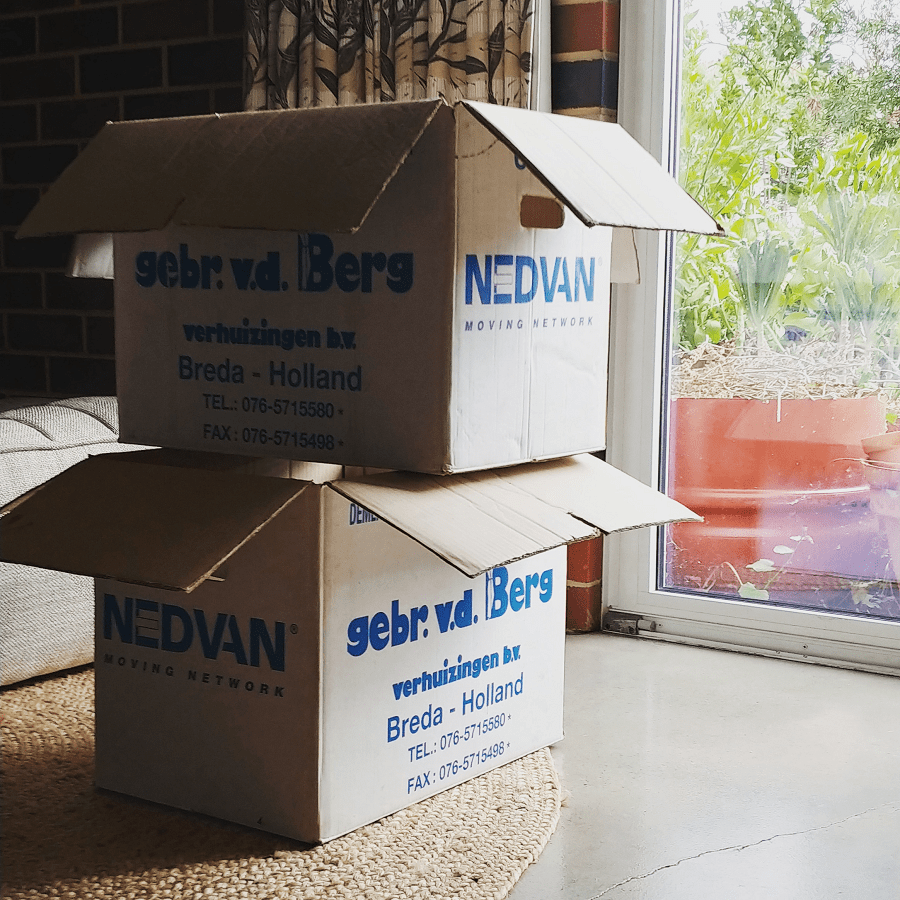
I checked the local grocery store and got a couple of sturdy tray-type boxes with handles at the side. These are great for moving my pantry and things that don’t stack well.
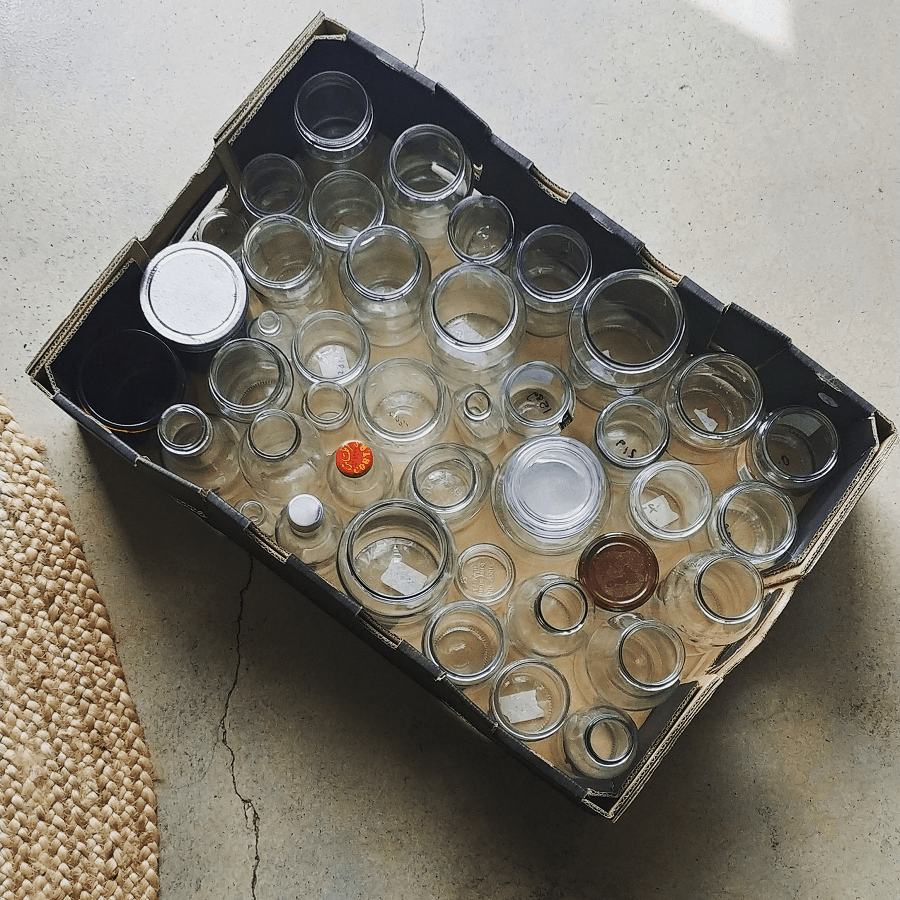
Packing Materials: Keep packing materials that you receive (or find) to pack fragile items. If you don’t buy much (like me!) ask around to see what others have or put a call-out online. Shops often have a lot of bubble wrap they are throwing out, and tissue paper. Who Gives A Crap toilet paper wrappers are good too, as are old newspapers.
(Once you’ve moved, list all your packing materials online for someone else to use, or give to a store that can use it for packing their sales.)
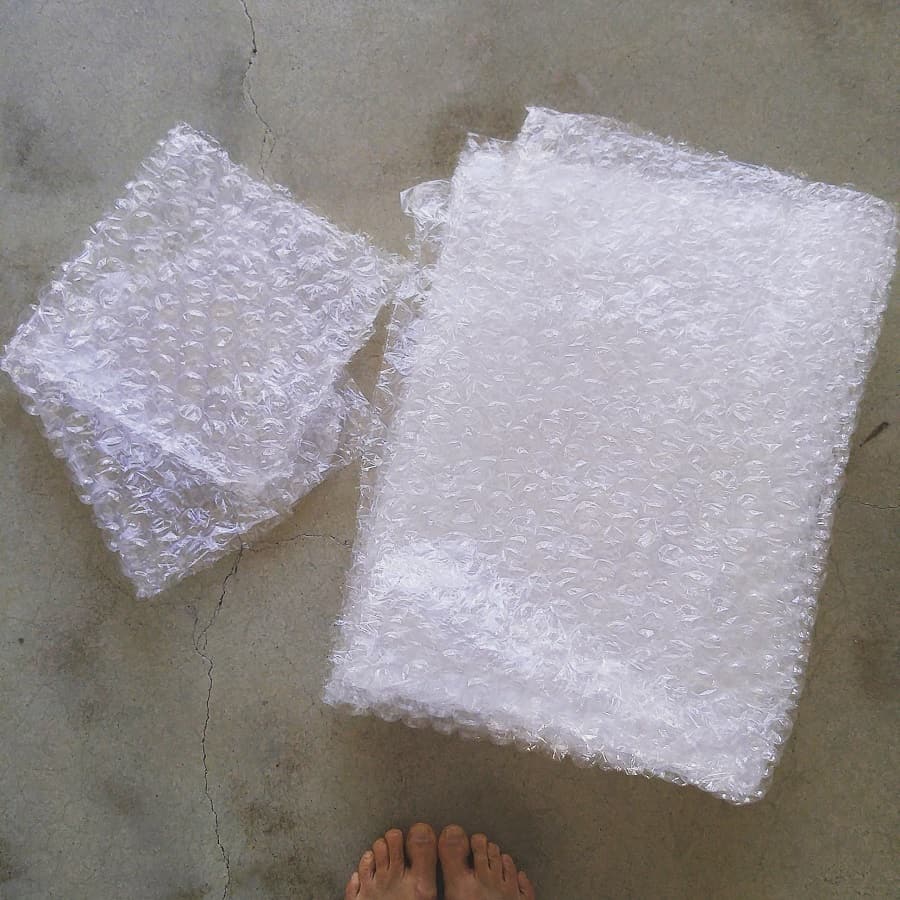
Tape: I have a very old roll of (plastic) packing tape that I purchased in 2011 and lives on. I don’t tape my boxes shut, I fold them by overlapping the flaps, but a couple of boxes needed taping at the bottom. The fridge door also needed taping shut whilst moving.
If I hadn’t owned any tape, I’d have purchased paper packing tape, but I prefer to use what I already have.
There is a surprising level of guilt around using plastic tape when moving within the zero waste community. If you can’t find an alternative and need to use it, then use it, no guilt required. It is better to tape boxes securely with plastic tape than smash the entire contents of an un-taped box because you were trying to save waste.
Old sheets/tarp: These can be useful for draping over and protecting items transported in a truck, van or trailer – to protect from dust, grease or the elements. If you don’t have any, ask around. Buy Nothing groups are ideal for this.
3. Use What You Have
It’s likely you already have plenty of great packing containers and also packing materials at home.
Suitcases and bags are the obvious choice for containers, but your laundry basket, large pans, plastic crates and decorative baskets might also be useful for transporting your stuff.
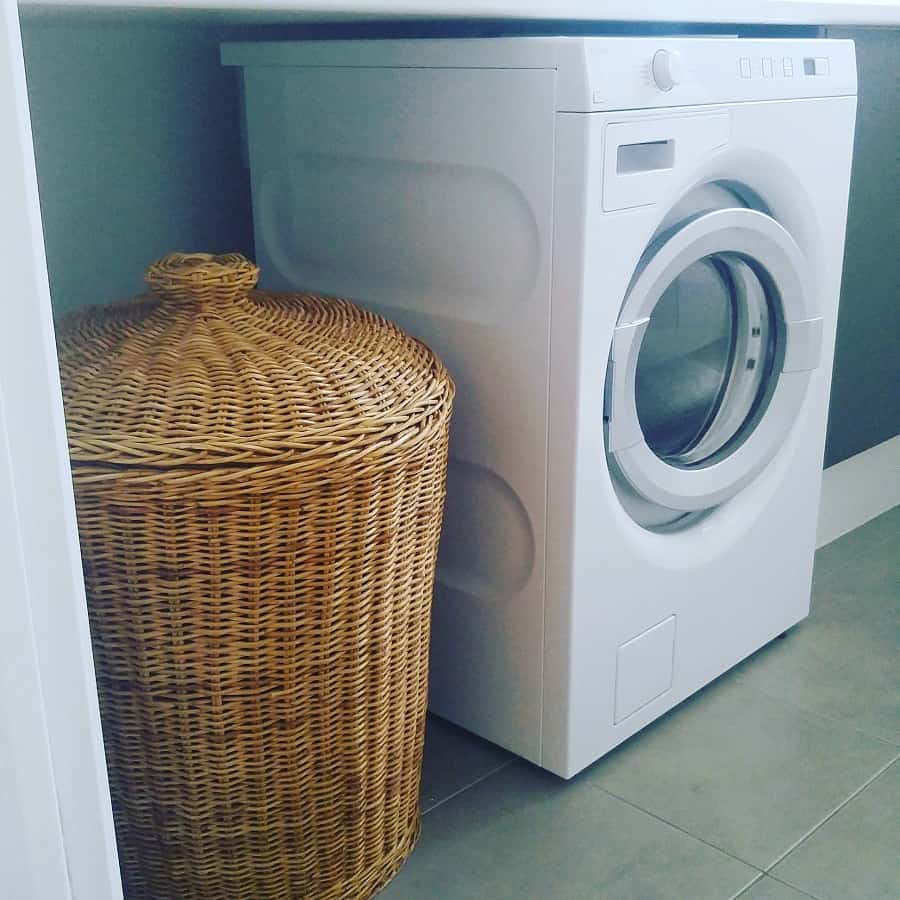
Plus, if you happen to buy anything that comes in a box in the weeks before the move, keep the box!
Plenty of things can be used as packing materials. Reusable produce bags, reusable shopping bags, tea towels, regular towels, socks, scarves, pillowcases – all can be used to cushion more fragile items.
4. Make a Plan for Your Perishables
If you’re going to be moving the fridge an/or freezer, you’ll need to turn it off before moving, and wait a few hours once it’s in its new home before turning it back on. Which means, there needs to be a plan for the things currently in there.
Planning to use up your perishables might be helpful if you’re moving far. Personally, I didn’t want to run down my fridge too much, because I had enough to do with the unpacking after the move, and didn’t want to have to go grocery shopping also.
I asked a few friends and neighbours if any had space in their fridge and freezer, and found one place for my frozen goods and another for my fridge stuff. (I also asked some friends if I could borrow their camping fridge, but alas, they were going camping that weekend!)
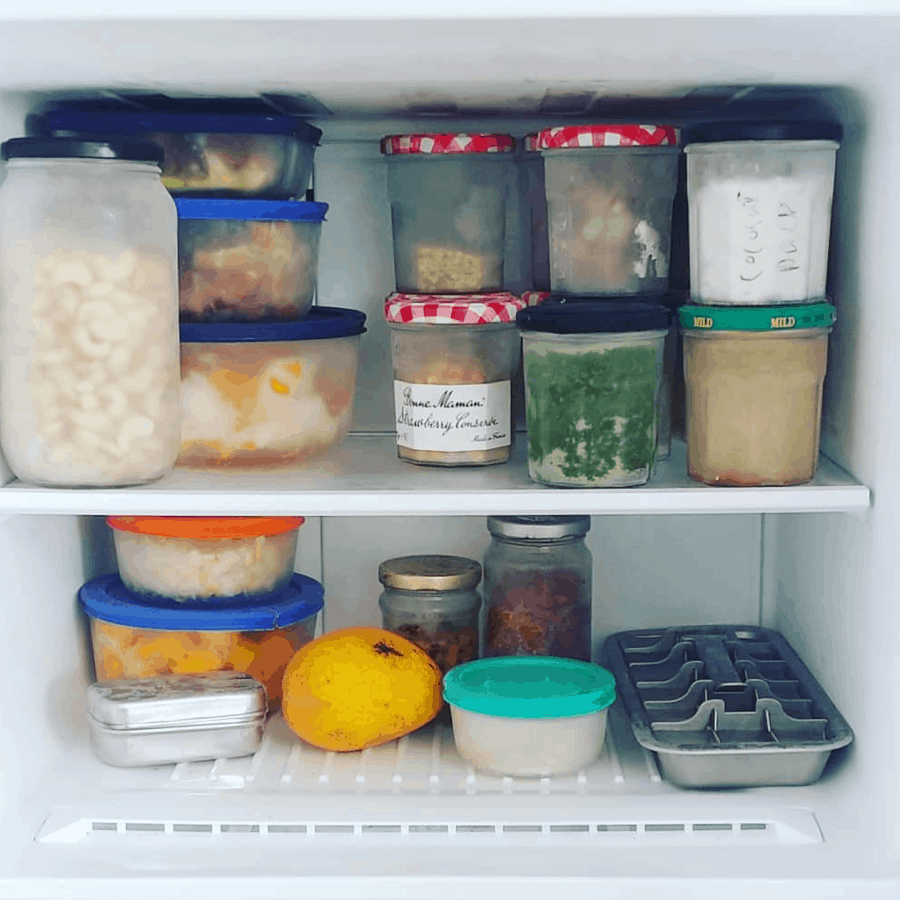
Worst case, if you can’t find somewhere to store your food, you can give it away so at least it isn’t being wasted. Offer to friends, family and neighbours or use a dedicated food waste app like OLIO to find new homes for edible food.
With the fridge stuff, I just concentrated on moving the real perishables. It made finding a temporary space a lot easier. Things like sauerkraut, pickles and jars of jam can cope without refrigeration for a day, so they were boxed and moved with everything else.
5. Choose Your Vehicle Wisely
Damaging your stuff in the move is a waste, and damaging yourself by lifting too much heavy stuff isn’t great either. Multiple vehicle trips are going to use more fuel than a single trip, and then there’s your time: no-one has too much of that and there are better things to do than moving inefficiently.
Think about what you’re trying to move, where you’re moving to and what would be the most appropriate (and efficient) way to transport it all.
When moving in the past I’ve booked a man-with-a-van, used a friend’s car, rented a trailer and borrowed a van from work, depending on the situation and what was available.
This time round, I hired a truck with a hydraulic lift. That’s because I had 12 x 100 litre plant pots full of soil to lift, not to mention a wheelbarrow, a 180 litre worm farm, 3 compost bins, wine barrel planters and a 240 litre bin full of soil.
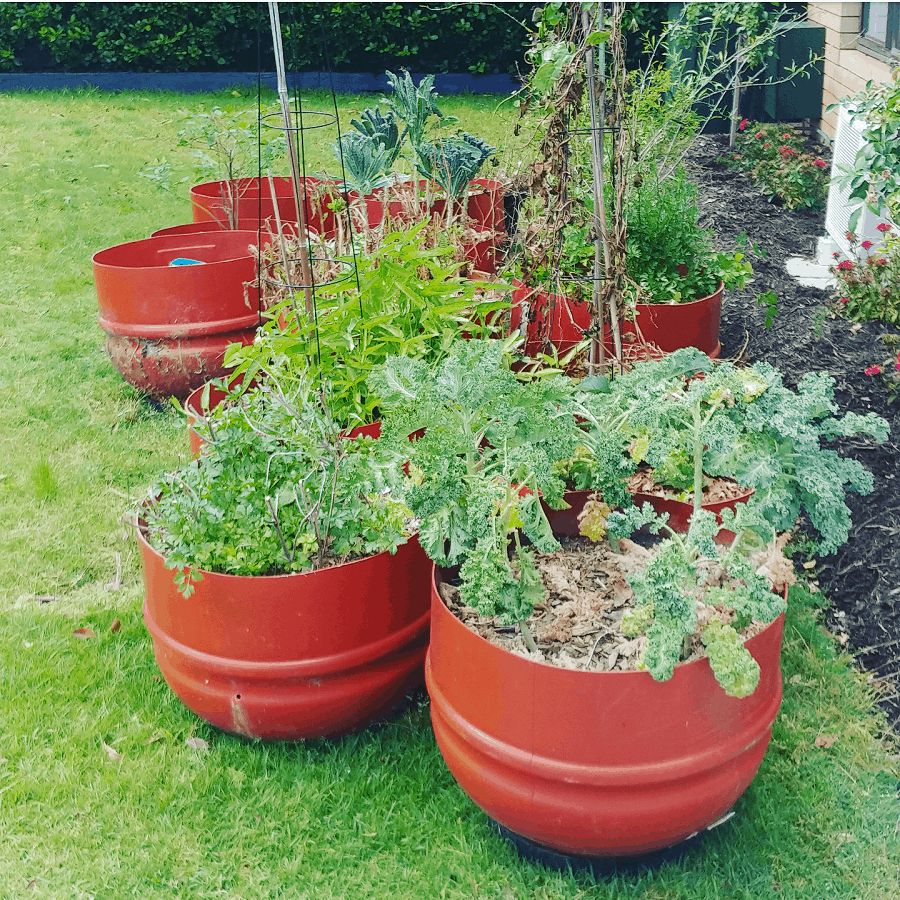
One or two things could have been wrestled into a van, but this was too much.
The furniture, white goods and boxes fitted in the truck for the first trip. The pots and garden stuff completely filled up the truck for the second trip.
There were also a few back and forth car trips, which was easy as this was a 3 minute drive between homes (I’m literally just a few minutes up the road).
6. The Bigger (or Further) the Move, The More You Plan
Because I wasn’t moving far, I could be (and was) a lot more flexible – by which I mean disorganised – in my approach.
In reality, it was very easy to load up a car and drop a load of things off in between doing other errands, as both homes are in the same neighbourhood. I got the keys on Tuesday and booked the truck for Friday, so the in-between (work) days were useful for moving things that might have got damaged in the move (like houseplants) and things I wanted to sort straightaway (like my pantry).
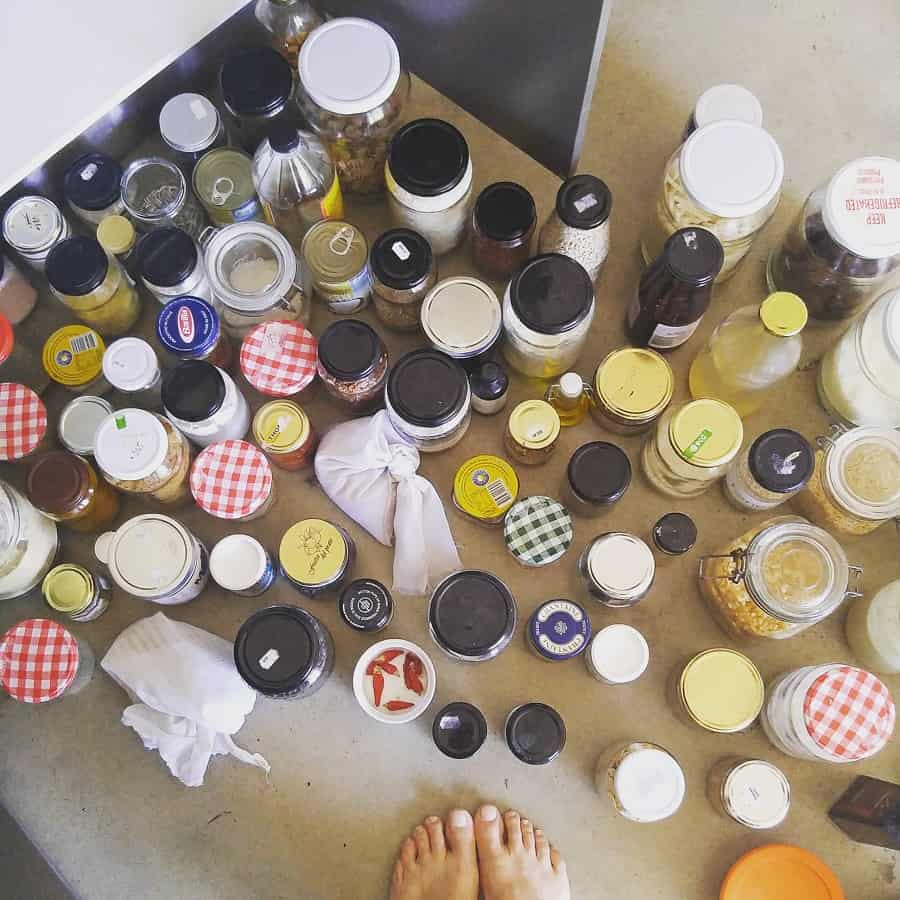
If I’d have been moving a few hours away (or anything more than 30 minutes, realistically) I’d have made sure everything was packed, boxed and labelled before the day.
Well, I’d have tried!
Moving is definitely stressful, but it doesn’t have to be wasteful.
Now I’d love to hear from you! Do you have any tips for moving? Do you have a move planned and are wondering what to do about certain things? Any other comments or thoughts to share? Please let us know in the space below!
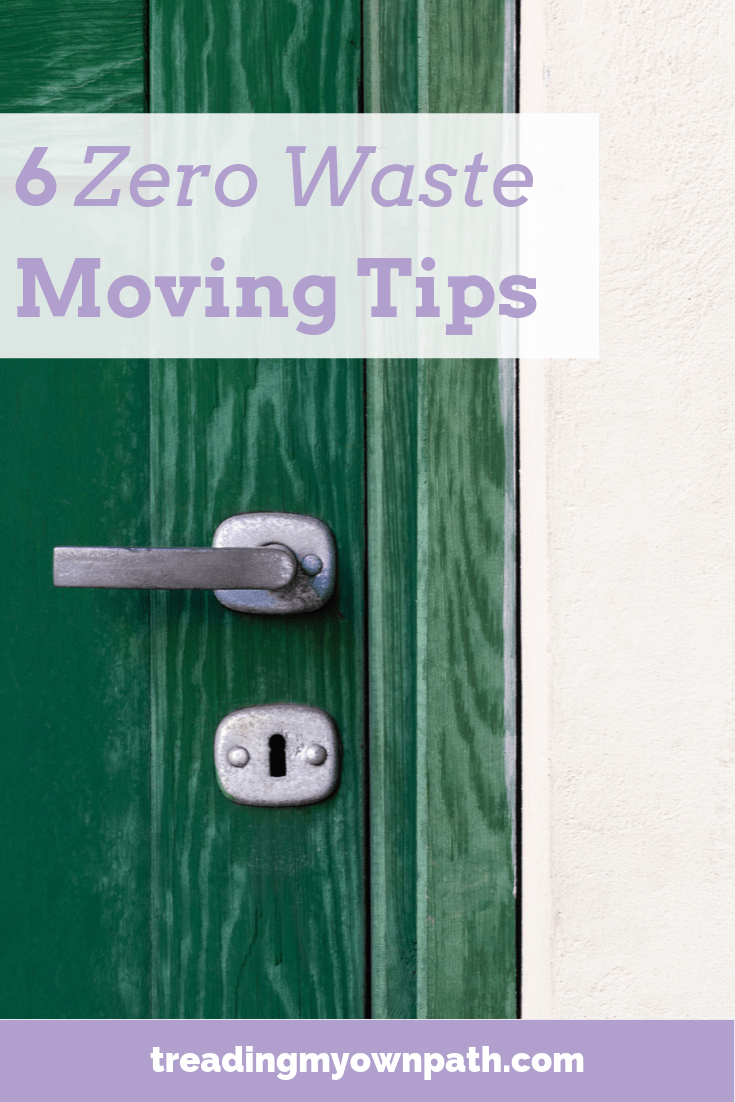
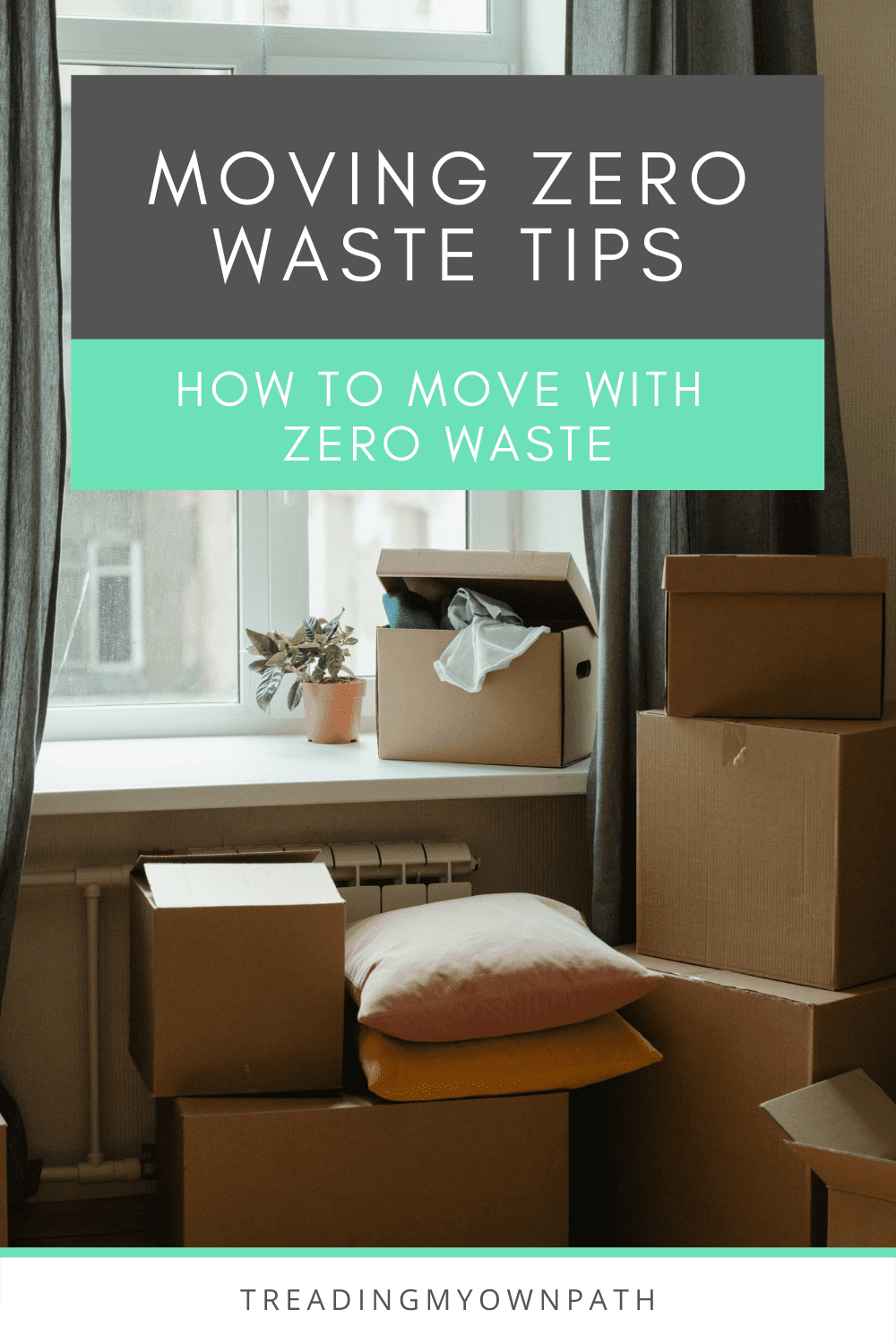

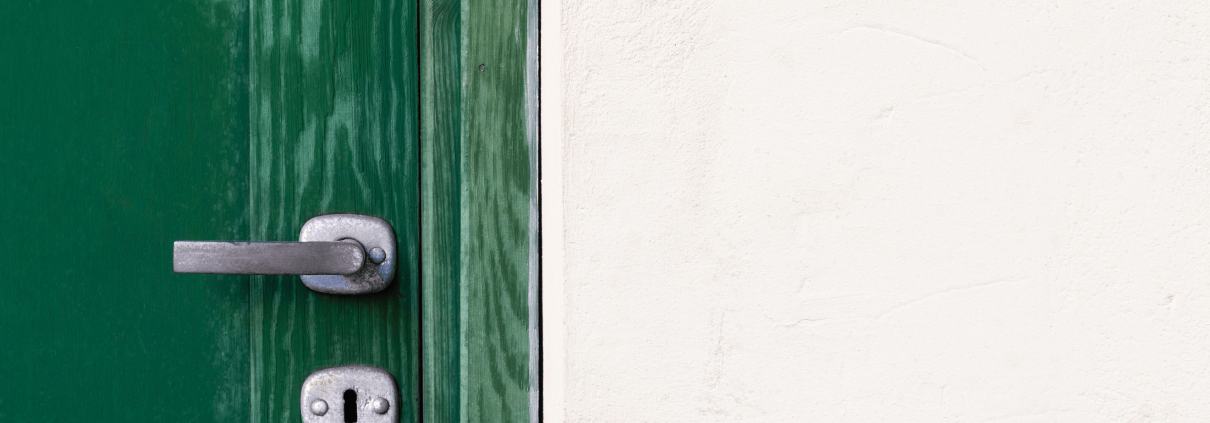
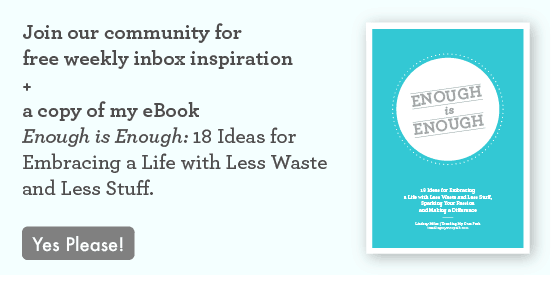




Finish off as much food as you can before you move. Don’t re stock any staples, for a few weeks before the move, and then the day after you can do a big shop and re stock. This can include fruit and veg, and dairy.
Thanks for the tips, Liz! I decided that there was no point running down my pantry actually as everything is in reusable refillable jars, which have to be moved regardless of whether they were full or empty! I’ve actually found it really useful at the other end NOT needing to do a big shop. I did pop to the bulk store mid-week, but I’ve not needed to get fresh veg for a week, I was able to use what I had :) It’s been nice to have one less thing to worry about.
Note! If you’re using paper packing tape on things be sure to remove it promptly afterwards if it will stick and tear and become a nightmare to remove
Oh really, thanks for sharing Sarah!
In Finland you can rent big plastic boxes from moving companies and that’s really the most convenient solution if only you can afford it. The price is something like 0,16 €/box/day. There is no need to worry about the box breaking, they are easy to carry or if you have a trolley (or what’s it’s name?), you can stack four of them on a pile and wheel them all at one trip to the van instead of carrying all four by hand.
Fill all the empty jars / containers you have with food. Those are easier to pile in boxes than say flour bags and that also saves space and with a proper lid, there is no fear of making a mess either.
For what comes to everything that’s fragile, I have used linens, kitchen towels, hand towels, t-shirts etc. fabric items to protect them. You have to move those too, so using them as packing material equals less boxes to carry, less trash to toss away after the move and maybe even less money spent when you don’t need to buy wrapping material. And for example compared to using newspapers, clean t-shirts don’t stain your tableware, so that’s a perk too.
Yes, Eija! I also started laughing when I saw the pic of the plastic package foil, as it had never occured to me that people could use it for moving. I’ve always used my bed linens, towals, scarfs and jumpers. But now I just realized that it probably depends on the climate zone in which you are located. Someone in Australia probably doesn’t need as much warm clothing…
Do you mean the bubble wrap, Frieda? I don’t really have anything valuable and breakable, and the few things I do can be wrapped in bedding etc. But when I was in the hardware store last week I saw big rolls of the stuff – for moving! What a waste of plastic and money :( If people really need it, it is so easy to track down pre-used. I’d guess most stores would have it and be glad to have it taken off their hands!
So many great tips Eija! I haven’t heard of renting the boxes, of course I love it – very good idea. And I agree with you on newspapers dirtying everything. The last time I moved I wrapped some thing up with this, and everything needed washing once unpacked. This time I avoided it :)
Many local companies in the U.S. rent reusable moving boxes. They deliver them to you and then pick them up at your new place when you’re done.
A lot of moving companies, measure and quote by the total cubic meter of the objects you are moving. So if you are hiring someone to move for you, your best option to reduce cost is to get rid of as many unwanted items prior to your move. This will help you avoid spending the extra money on moving those items.
Yes great tip Sophie! Nothing worse than paying to move stuff you later get rid of. I think the further you are going the more important it is too.
Serial mover: a top tip I learnt was to print a floorplan of the house out (which gets pinned to the front door of the new home on move day) colour in/name each room it’s own colour/name and colour coordinate/name the boxes to which room they belong to. Stops helpers piling boxes up randomly in the house, usually against a wall, and usually the box with the kettle in on the bottom.
Haha this made me laugh Ashley because I am also a serial mover (as an adult I’ve moved 15 times, and the longest spent anywhere was 3.5 years) but I do not do this, have never done this and have exactly the kettle problem you mention, every time! Lost my clothes pegs for a while and had to borrow some from a neighbour so I could hang out my washing this time round! A great tip. Soooo organised!
বাসা ও অফিস বদলে নিশ্চিন্তে নির্ভর করুন আমাদের উপর
Household And Office Shifting services company In Dhaka Bangladesh
A moving company named Rajdhani Movers was established with the plan to deliver a Shifting service to the doorstep of the customer, the dreamer of the world-class packing and Moving services, to modernize the moving services of Dhaka Bangladesh
Moving is not an easy way, it is one kind of disturbing work for anyone. To plan the whole household material pack needs some good ideas for that. To finish this purpose I need some pre-step for moving interstate. Here I get some pre-planning to perform this purpose. I appreciate your wonderful blog for giving a helpful resource.
Some goods are not important for us. That’s why we can sell that. As a result we can reduce our carry cost and help to shifting easy way.
Love this Post ! Moving is not an easy task. I invested a plastic bag but i found it very hard. So I’ll consult with the professionals. These guys are very professional and understanding. They remove my things without any scratch.
Magnificent site. Lots of useful info here. I am sending it to a few friends ans additionally sharing in delicious. And obviously, thank you for your sweat!
Great tips thank you
I completely forgot that food in the fridge needs to be moved as well. Thanks for the reminder!
Hello linkdsay,
Wonderful moving tips for remote or close move. Great article with necessary information like online moving quotes. For travel, these quotes help me more. Here I am getting some real-life experience to work with productivity quotes.
Excellent tips! Moving to a new city with loads of things is indeed a stressful task. If this is done right it will really save a lot of time and there will be no hassles. Keep up the good work!
I hope everyone could read this article. People should find ways to reduce their carbon footprint in this word.
Great point on reusing / not buying packing boxes. We’ve been using ones we got for free for over 10 years, they even survived a 22,000km sea voyage from the UK to Sydney!
Moving is stressful!